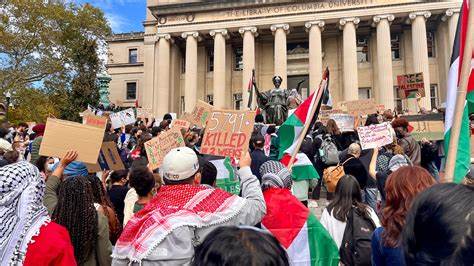by Carolina Ampudia 03272025
Columbia University didn’t sell out like a sex worker—it did something far worse.
As a labor organizer, former professor, and community advocate, I’ve had the privilege of knowing sex workers who are brilliant, principled, and deeply committed to justice. Their work is honest and consensual. They exchange labor for survival in a world that offers them little protection, and they do so with clarity and courage. They don’t pretend to be moral authorities. They don’t compromise others to get by. They harm no one.
Columbia, on the other hand, has cloaked itself in moral prestige for decades—only to abandon its principles the moment real power came knocking.
In March 2025, under pressure from the Trump administration, Columbia agreed to a series of sweeping, dangerous concessions to secure the restoration of over $400 million in federal funding. These included overhauling disciplinary procedures, hiring security officers with arrest powers, modifying admissions processes, and placing the Department of Middle Eastern, South Asian, and African Studies under academic receivership.
The pretext? A crackdown on alleged antisemitism. The reality? A political move to suppress pro-Palestinian organizing, chill dissent, and silence critical inquiry on campus.
Let me be clear: antisemitism is real, and it must be condemned and confronted wherever it appears. We have seen terrifying spikes in antisemitic rhetoric and violence, especially from the extreme right wing during both Trump administrations. But conflating legitimate criticism of Israeli government policy with antisemitism does not protect Jewish students—it distorts the meaning of antisemitism and risks undermining efforts to fight actual bigotry. Worse, it weaponizes Jewish safety as a political tool, while doing nothing to challenge the white nationalist movements truly responsible for the most violent antisemitism in this country.
As a former educator who spent over a decade in higher education, I know exactly what’s at stake. This isn’t about a single policy. It’s about academic freedom. It’s about whether universities remain spaces where students can think critically, speak freely, and challenge injustice—even when it’s politically inconvenient.
When Columbia caved to federal demands, it didn’t just compromise its own values—it set a terrifying precedent. It told the world that even one of the wealthiest, most powerful institutions in the country can be bought and bent to political will. That with enough pressure, universities will sacrifice their faculty, their students, and the integrity of their curriculum.
What happens the next time an administration decides to target gender studies, climate science, or labor history? Columbia has already handed them the blueprint.
And let’s not forget who gets hurt first. It’s not the tenured elite or the politically connected. It’s the Palestinian students already dehumanized in the public discourse. It’s the Jewish students organizing in solidarity who are now surveilled or censored. It’s the Black and brown scholars whose departments are gutted. It’s the protestors who risk arrest not for disrupting learning—but for daring to defend it.
Meanwhile, Columbia claims neutrality. But there is no neutral ground in the face of authoritarianism—there is only complicity.
As a labor leader, I’ve seen this same dynamic play out in the workplace: the powerful demanding silence, the institution bending to avoid discomfort, and workers left to bear the consequences. We’re watching it happen in real time on campuses across the country. But Columbia didn’t just roll over—it set the tone.
So no, Columbia didn’t sell out like a sex worker. That would imply honesty, mutual consent, and survival in the face of marginalization. What Columbia did was betray its own mission, its community, and its place in the history of higher education—all in exchange for money and political favor.
Sex workers deserve dignity. Columbia deserves scrutiny.
We should be alarmed—but not paralyzed. There is still time for faculty to speak up, for students to organize, and for the broader public to demand that universities remain bastions of intellectual freedom, not pawns of federal politics.
Because what’s at stake now isn’t just Columbia’s future—it’s the soul of every institution that claims to educate free thinkers in a free society.

Columbia Didn’t Sell Out Like a Sex Worker—It Did Something Worse
Posted in Pulse Line 1, Uncategorized.



